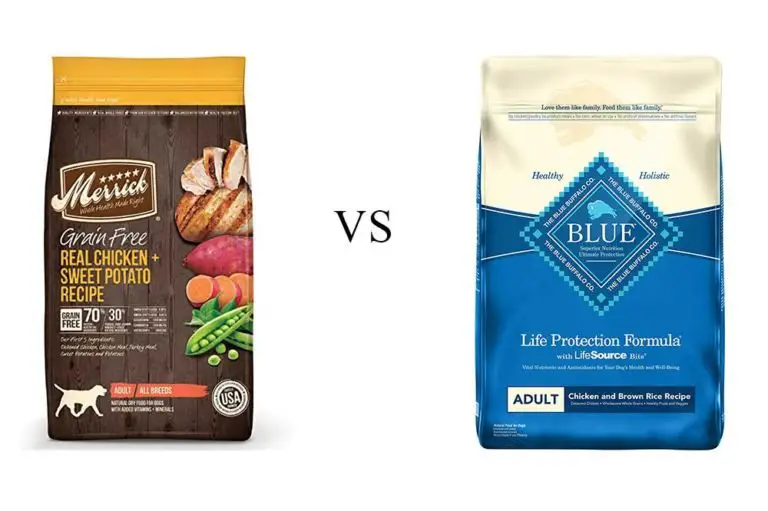Can Dogs Eat Eggplant?
It’s hard to say no when you see puppy dog eyes. You know your dog just wants a bit of your food, and if you’re like most dog owners, you’re probably willing to share a bite. But before you give your dog something from your plate, you’ll want to make sure that what you’re eating is safe for your dog.
You may be wondering if eggplant is a snack your pup can safely enjoy. Many factors contribute to this answer.
Can Dogs Eat Eggplant? Simply put, Eggplant is safe for most dogs to eat. It is not poisonous, and it contains many vitamins and minerals to improve your dog’s health. As with most vegetables, there is also fiber to help your dog feel full and to aid in digestion.
However, some dogs can be allergic to eggplant, and others may have conditions that can be made worse by consuming eggplant. These conditions don’t exist in most dogs, but it’s important to be aware of the potential risks.
If you’re hoping to add a little eggplant to your dog’s diet, keep reading to determine if it’s actually safe for your dog.
Eggplant Nutritional Value
The eggplant is so much more than a popular emoji. There is a lot of nutritional value packed into this low-calorie vegetable. One cup of raw eggplant contains only 20 calories.
Packed inside those 20 calories are 3 grams of fiber plus manganese, folate, potassium, vitamin K, vitamin C, vitamin B6, niacin, magnesium, copper, calcium, zinc, phosphorous, antioxidants, and more.
All these nutrients found in eggplant contribute to many potential health benefits in both humans and dogs.
Potential Benefits
A variety of vitamins and minerals contribute to your dog’s health, and eggplant is a great source of a whole lot of them. There are many potential health benefits associated with eating eggplant, and a few of them are listed below.
Many of the nutrients listed before are great for your dog’s cardiovascular health. They can help to prevent heart disease and lower blood pressure and bad cholesterol levels.
Eggplant also contains chlorogenic acid, and research has shown that this compound can reduce the risk of cancer.
Some of the other potential benefits of eating eggplant include a decreased risk of bacterial and viral infection, increased brain function, and even the prevention of brain damage.
Eggplant is also a low-calorie, high-fiber vegetable, making it a great treat or supplement for dogs who need to slim down. That fiber is great for helping dogs feel full, and it’s great for digestion.
There are many benefits of eating eggplant, but depending on the dog, there could be some complications as well.
Potential Side Effects
Although most dogs can safely eat eggplant, there are a few things to watch out for. Consider the following:
Does your dog have arthritis, kidney issues, or any health problem related to inflammation? Eggplant could make inflammatory issues worse. If you know your dog has these problems, don’t feed them eggplant.
Has your dog had kidney or bladder stones? Eggplant contains oxalate, which contributes to the formation of these stones. If stones are a concern for your dog, eggplant is definitely not the treat for them.
Is your dog anemic? There’s a compound in eggplant that can bind to iron and pull it from the hemoglobin. This reaction lowers the concentration of iron in the blood, worsening symptoms of anemia. If your dog already has problems getting enough iron, avoid feeding them eggplant.
You will likely know if your dog has any of those conditions, but you should also watch out for an allergic reaction. Eggplant is related to the tomato which some vets say is not okay for dogs to eat. While the eggplant is said to be safe for dogs, yours may be sensitive to it.
Just like humans, dogs can have food allergies. If your dog is trying eggplant for the first time, feed them a small amount and watch out for the symptoms of an allergic reaction. Symptoms can include itchiness, rash, swelling, upset stomach, diarrhea, or vomiting.
If you notice any of those symptoms in your dog, call a vet. If the reaction is mild, your dog can likely handle it, but if it is more severe, they will need an antihistamine, such as Benadryl.
Best Way to Feed Your Dog Eggplant
Most dog foods contain some vegetables already, so it is unnecessary to give your dog a lot of eggplant. Keep the portion size small to maintain a proper nutrient balance.
Eggplant can be used as a replacement for processed treats or used to supplement food. This is great for dogs who have a hard time staying full after a meal. It can also be used as a substitute for a little bit of food if you’re trying to cut back on how much you’re feeding your dog. This is a great way to use eggplant for weight loss.
If your dog doesn’t like the taste of raw eggplant, you can roast it or prepare it to give it a better flavor. Just be sure to avoid or use very small amounts of oil. Dogs don’t need a lot of fat. Also, be sure to avoid salt and seasonings. Too much salt is bad for your dog, and some seasonings can be toxic. When it comes to preparing eggplant for a dog, simpler is better.
It is best to give your dog small, bite-sized pieces of eggplant. This will eliminate the risk of choking on larger pieces if they try to eat too quickly.
And if your dog just doesn’t like eggplant, don’t worry. There are plenty of other vegetables they can eat to stay in tip-top shape.
Final Verdict
Although dogs typically need more protein-rich food, eggplant is a fine treat or supplement. There are many potential health benefits to eating eggplant, but it’s important to check that your dog doesn’t have any pre-existing health conditions that could become worse after eating eggplant.
Check with your vet before adding eggplant to your dog’s diet, and be sure to monitor your dog the first time they try it.
Eggplant can be delicious and nutritious for your pup in moderation. Next time you’re cooking with it, be sure to let your pup try a little piece.







